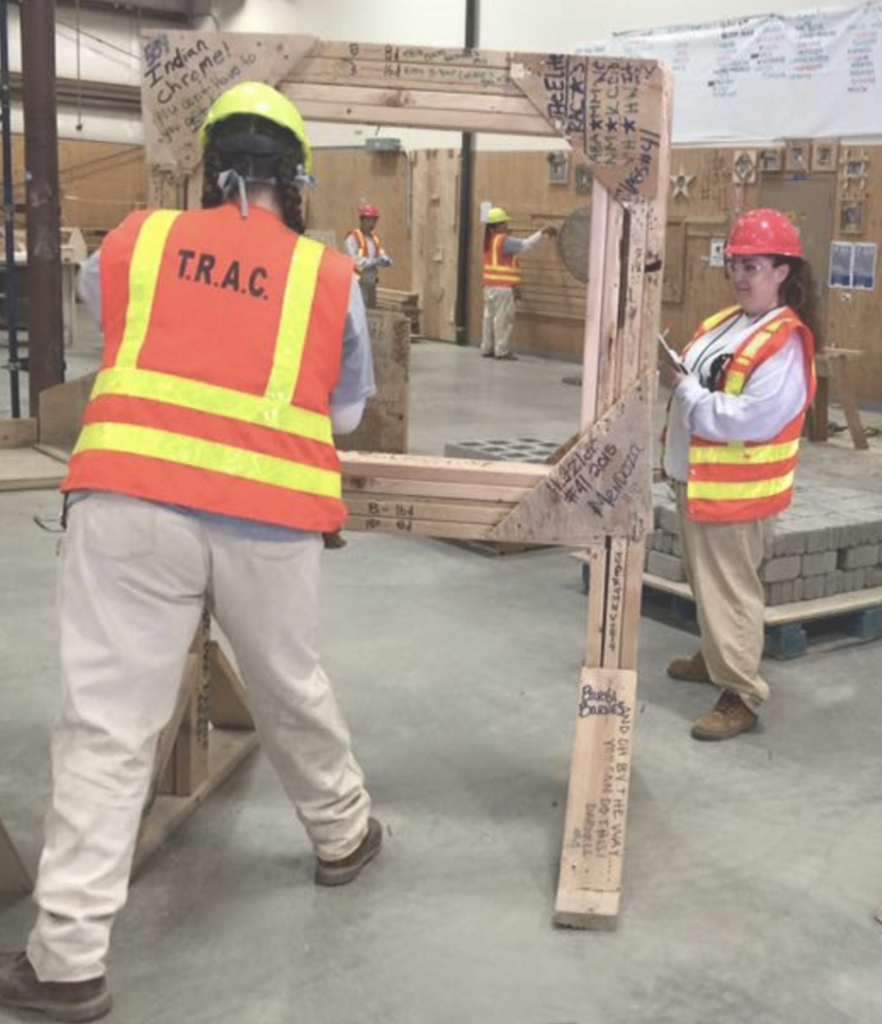Labor & Economy
Women Convicts Train for a Future
When Grammy Award-winning singer John Legend covered “Redemption Song” last week, his audience—hundreds of prisoners at the women’s prison in Washington State—may have the most grateful ears for such a liberating song.

When Grammy Award-winning singer John Legend covered “Redemption Song” last week, his sound filled an unlikely venue. But his audience—hundreds of prisoners at the women’s prison in Washington State—may have the most grateful ears for such a liberating song.
He was visiting the prison, the Washington Corrections Center for Women, along with leaders of the AFL-CIO to highlight an innovative labor union partnership that’s been preparing prisoners there for return to society.
“The overarching story is [the criminal justice system] is not healthy right now,” Legend said, introducing the song. “We need to focus more on fairness, compassion, mercy and restoring people so they can be whole and go back into the community and live productive, compassionate, healthy lives.”
Before Legend’s visit, In the Public Interest joined with the National Employment Law Project (NELP) to release a new report to bring attention to how unions are creating job training programs nationwide to help people coming out of prison. Programs like Washington’s own Trades Related Apprenticeship Coaching (TRAC) program prepare prisoners and the formerly incarcerated for one of the most difficult parts of reentering society, finding work.
One the most effective ways to reduce prison populations is to help the formerly incarcerated get good jobs that pay living wages and provide decent benefits. Today, more than four out of 10 adult American offenders return to prison within three years of their release. Finding work can limit this recidivism, but all too often people are released without the skills needed in growing industries or the professional networks to access good jobs.
Washington Corrections Center for Women’s TRAC program trains incarcerated women in building and construction work, providing a leg up in earning entry into a union apprenticeship program that leads to a career with good wages and benefits. I was lucky enough to meet some of the women in the program several years ago, and their stories are inspiring.
Ending mass incarceration will succeed only if the formerly incarcerated have skills and jobs.
We highlighted a handful of successful training programs in our new report, but we’re looking for more—let us know if you’ve got one in your community.

-

 Column - State of InequalityJanuary 22, 2026
Column - State of InequalityJanuary 22, 2026On Eve of Strike, Kaiser Nurses Sound Alarm on Patient Care
-

 The SlickJanuary 20, 2026
The SlickJanuary 20, 2026The Rio Grande Was Once an Inviting River. It’s Now a Militarized Border.
-

 Latest NewsJanuary 21, 2026
Latest NewsJanuary 21, 2026Honduran Grandfather Who Died in ICE Custody Told Family He’d Felt Ill For Weeks
-

 The SlickJanuary 19, 2026
The SlickJanuary 19, 2026Seven Years on, New Mexico Still Hasn’t Codified Governor’s Climate Goals
-

 Latest NewsJanuary 22, 2026
Latest NewsJanuary 22, 2026‘A Fraudulent Scheme’: New Mexico Sues Texas Oil Companies for Walking Away From Their Leaking Wells
-

 The SlickJanuary 23, 2026
The SlickJanuary 23, 2026Yes, the Energy Transition Is Coming. But ‘Probably Not’ in Our Lifetime.
-

 The SlickJanuary 27, 2026
The SlickJanuary 27, 2026The One Big Beautiful Prediction: The Energy Transition Is Still Alive
-

 Column - State of InequalityJanuary 29, 2026
Column - State of InequalityJanuary 29, 2026Are California’s Billionaires Crying Wolf?

